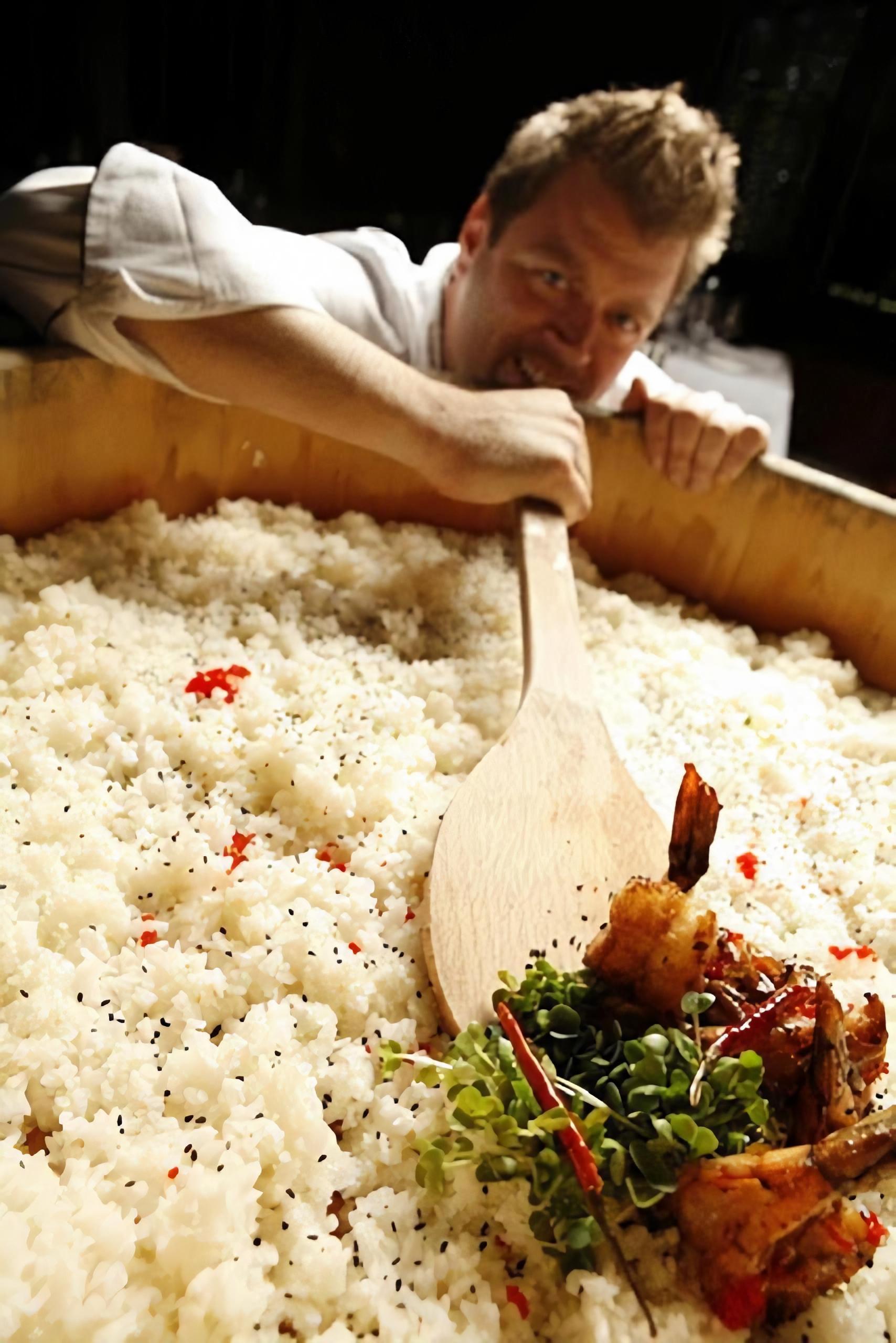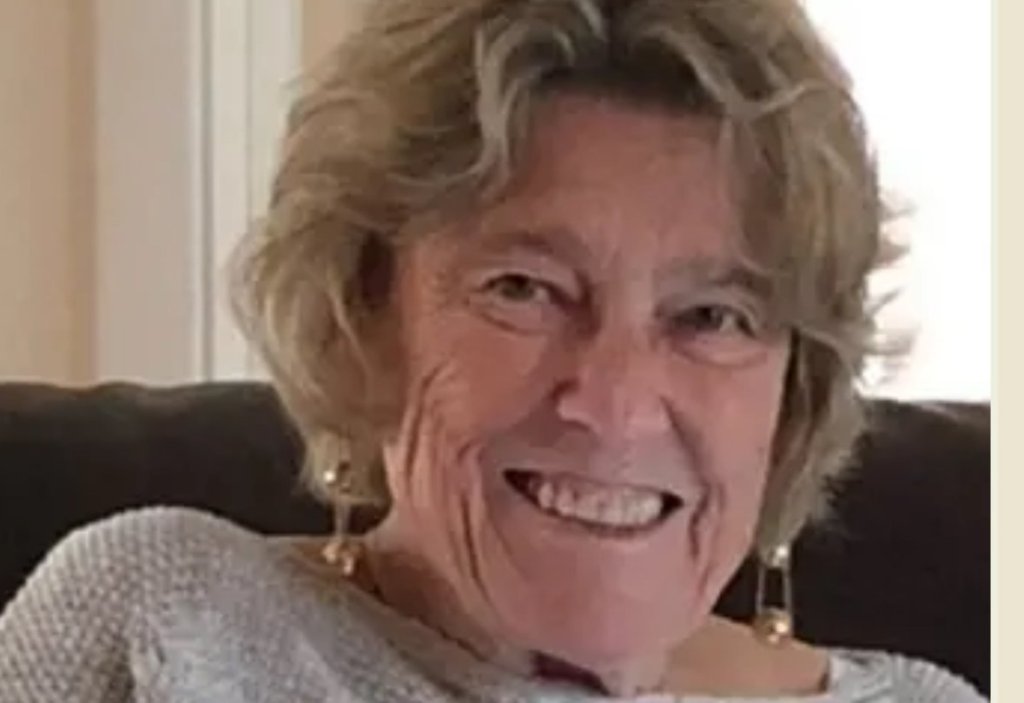Meet New Gurney's Executive Chef Robert Hamburg

Gurney’s Montauk Resort & Seawater Spa has welcomed new Executive Chef Robert Hamburg lead their impressive lineup of restaurant and culinary offerings. The resort, which includes restaurants like Scarpetta and The Beach Club, offer several eclectic and enticing menus for guests to enjoy, and Hamburg, a lifelong New Yorker and chef with more than 30 years of experience, is here to make it even better. Hamburg talks about his experience, his East End favorites and more.
You’ve worked a lot in the city. What are some of the differences you’ve found working in Montauk?
There’s definitely a different energy. Look, good cooks are good cooks. I don’t care where they are. People who are passionate about this business, people who want to be good at what they do are good anywhere. This place—when it’s busy, it’s crazy just like the city. Obviously, Montauk’s very seasonal, whereas, in the city, it’s kind of seasonal as well. Come to summer, it slows down.
Gurney’s has a number of different restaurants and different offerings. Talk about how you juggle all that.
I stay on top of it. I’ve done a lot of different style foods, which is obviously a big help. It’s just managing. Once you find your groove in the kitchen, that movement, that daily mood, and your mental inventory, your eyes are just clicking, clicking, clicking, and taking information in all the time, and then in a very short time, you already have a mental inventory about it, where people are supposed to be, where product is, what’s going on, who is moving.
Once you set it up to be somewhat of a clock where you know almost what time of day and what product is going to go where, who’s going to be where, it’s just a matter of just again being in the flow of it. I don’t sit behind a desk all day. It’s not my style.
You come from a long line of butchers.
Yes, my grandfather was a butcher in Hell’s Kitchen. My father, obviously, was a butcher in Hell’s Kitchen. When my grandfather decided to move to Massapequa, my dad kept the business running for a while, and then he opened his own in Yonkers. Then basically, the supermarkets took over the business. They stopped selling to butchers the split meat.
You couldn’t buy a half anymore. Everything became boxed meat. Once everything became boxed meat, the supermarkets became very effective at it. Christie’s, I think, was one of the first ones to really introduce the supermarket in the city. Before then, to get your meat, you’d go to your butcher, you’d go get your fish at your monger.
What would you say, as a chef, is your specialty?
A specialty just reflects on what you like, right? I did a lot of the “East meets West,” back in the day with Ming Tsai. I wouldn’t say I was personally at the forefront of it, but when this country started adapting to the Asian flavors, I think the Asian flavors really lit up. So I like to use a lot of Asian flavors in American-style food because David Burke’s definitely one of my mentors, and I just thought his American style, with all the fusion—or influence, I would call it, not fusion—I hate the word fusion. I really do. With the influences of Asia, he used a lot of that. Again, Ming Tsai did the same thing. I went towards that, of course, with French influence. There’s no way of getting out of that. We were all trained French-style cooking back in the ’90s.
Talk about how you got started (besides being from a butcher family).
I was in college and then I just joined the ACF (American Culinary Federation) and I did an apprentice program. Then, I went to Garden City Hotel and I said, “I know how to butcher. I want to learn how to cook.” The guy said to me, “Do you know how to butcher?” I said, “Yes.” He took me in the butcher room, I started butchering the fish, the fish came a little—It came natural, but it was a little different than the meat. Once he saw me butchering, he hired me, and that’s where I started.
What is your goal at Gurney’s?
Definitely to improve speed. Once you can improve in speed, you can improve in quality, you can improve in everything else. I think that’s the goal right now is to get things going quicker, smoother, and then quickening and then giving a better product. One of my biggest goals right now is to make a better lobster roll.
What does that entail? What are your ideas to make it better?
It’s got to be real, fresh meat. Let’s face it, that’s all it really comes down to is getting a really good product, really fresh, and getting it on that table fresh as can be.
What is your ideal lobster roll?
My ideal one would be a slightly warm one with a little lemon. Let the lobster shine through. I love the lemon on it. I’m still a little old-school, with a touch of tarragon, I’ve got to be honest. The mayonnaise is just something there. It’s not a salad.
Do you plan to incorporate a lot of local ingredients and produce?
Absolutely. I’m going to try and get as much from the farmers out here during the season as I can. Why wouldn’t you, right? The corn, all the key ingredients, too. I don’t care what anybody says, the corn (on the East End) is the best in the world. Some of our tomatoes are the best in the world, too. I know Jersey is going to fight us on that!
To learn more about Gurney’s Montauk Resort & Seawater Spa, visit gurneysresorts.com/montauk.



